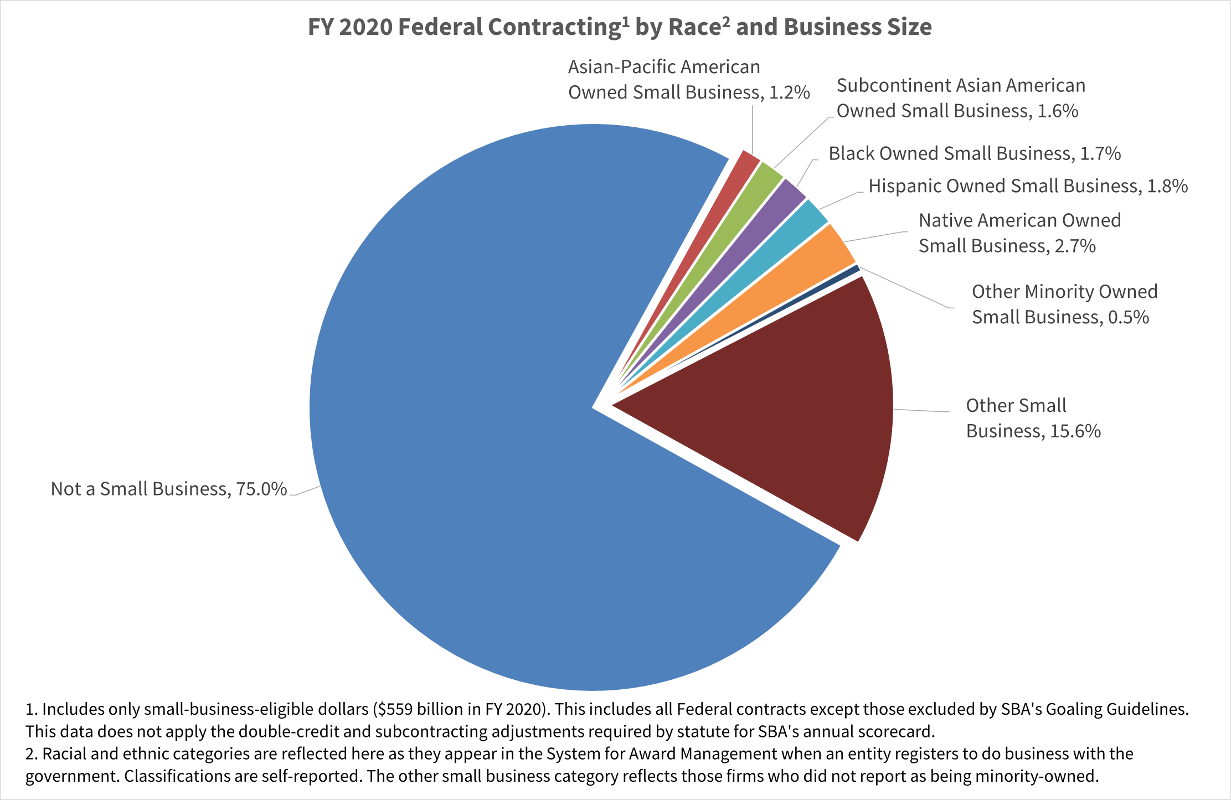How Small Businesses Benefit From Federal Procurement Reforms


Competing for public sector contracts is no easy game. While it’s typically simple enough to start locally, the fact is that the higher the agency level, the harder the barriers to entry become. And, frankly, participating in federal procurement has historically been based on being a difficult endeavor. This is especially true for small to medium-sized businesses. But here’s the good news: there are more incentives than ever for small and medium businesses to pursue public procurements, government bids, and federal contracts. At the federal level, new initiatives are driving more spending toward smaller businesses.
For the past seven years, the federal government has met its goal of awarding 23% of eligible prime contract awards to small businesses. This looks great on paper, yet as Dan Strangler from the Bipartisan Policy Center points out, this isn’t due to new small businesses entering this category. Rather, the Center found that “…the top-line statutory goal has been met with more dollars awarded to fewer small businesses.”
As cheerleaders for small to medium businesses competing for contracts in the public sector, The Bid Lab is aiming to change that. Based on our experience, policy initiatives for top-level agencies will trickle down the public procurement pipeline to lower-level agencies. In the following article, we explain how businesses can start reaping the rewards of federal contracts.
Why Federal Procurement Is Difficult for Small Businesses
We don’t need to dive too deeply into this since you likely have already experienced the hurdles posed by public sector procurement. From a federal standpoint, you’ll need to jump through hoops of all sizes, like:
- Having years of credibility and meeting compliance requirements within the industry
- Getting proper registrations and ID numbers
- Registering with the official US federal procurement site Sam.gov
- Meeting cybersecurity requirements
- Researching official federal procurement requirements from resources like SBA.gov
Acquiring each of these can have its own process that can take from days to years to complete. Then, once you finally do meet the standards for entry, you must research, draft, and submit a compliant and responsive bid fully addressing the agency’s initial 100-page RFP.
For small businesses, not having the manpower, time, financial backing and more makes it difficult to compete for public sector contracts. However, this isn’t going unnoticed; in fact, the White House and top federal agencies are working to change it.

White House Reforms: Federal Contract Incentives for Small Businesses
In December 2021, the Biden-Harris Administration announced several initiatives to increase the share of federal contracts going to small disadvantaged businesses (SDBs). Some of these initiatives include:
- Increasing governmentwide contracting dollars from 5% to a new target of 11% for SDBs in fiscal year 2022. The Administration has asked federal agencies to triple that goal to 15% by 2025.
- Implementing changes to the federal government’s use of ‘category management’. The old policies surrounding this tactic direct agencies to purchase common items in bulk to leverage government spending power. However, this narrows the pool of suppliers who can afford to negotiate lower prices.
- Adopting key management practices to drive accountability and institutionalize the achievement of small business contracting goals. In other words, agencies must be more transparent in their purchasing decisions.
There are several reasons to be excited about these initiatives. After all, according to a statement by Rep. Kwesi Mfume in October 2021, category management is a “driving force behind the decline of the number of small firms serving as federal prime contractors.” So, revisions to this policy will allow agencies more opportunities to purchase from SDBs and “increase baseline spending” for a more diverse pool of small businesses and traditionally underserved entrepreneurs.
Again, transparency will be the key driver of accountability. As the following disaggregated data collected by the Small Business Association (SBA) shows, in FY 2020, federal agencies purchased from far fewer ethnic and diverse businesses than others.

Department of Defense Purchasing Strategy Reforms
Outside of the White House announcements, the largest government purchaser, the Department of Defense, is reforming its purchasing strategies. As the Deputy Secretary of Defense Kathleen H. Hicks said, “DOD wants to harness from the very best of America in sourcing a broad, diverse set of potential partners and suppliers — especially small businesses.”
The DOD does meet its annual spending requirements with small businesses. Yet, there has been a decrease in the number of small business suppliers available to the DOD. In response, the DOD decided to examine and take action to reduce barriers faced by small businesses.
One of their top goals is to provide “streamlined, easier-to-use entry points into the defense marketplace”, starting with their small business program website. In addition to the website, the DOD is further committed to leveraging programs like the Small Business Innovation Research. Programs like this help foster small business growth across the country while offering mentorship opportunities with the DOD and other federal agencies.
You Don’t Have to Go It Alone
Still unsure whether your business is ready to respond to federal RFPs? Not ready to tackle Sam.gov on your own? Or do you just feel too busy meeting all of your company’s day-to-day obligations? No worries! The Bid Lab’s federal procurement experts are here to help. Our Bid Manager team can help you pursue bids and federal contracts that align with your federal bidding objectives. In addition, our professional researchers, writers and editors work with you as an extension of your own team. So, no matter the RFP’s scope or proposal requirements, we’ll help you submit a fully compliant and competitive bid. Let’s make your next federal bid a positive and successful experience! Reach out to us today by calling 1-844-4BIDLAB or emailing respond@thebidlab.com for a free consultation.
